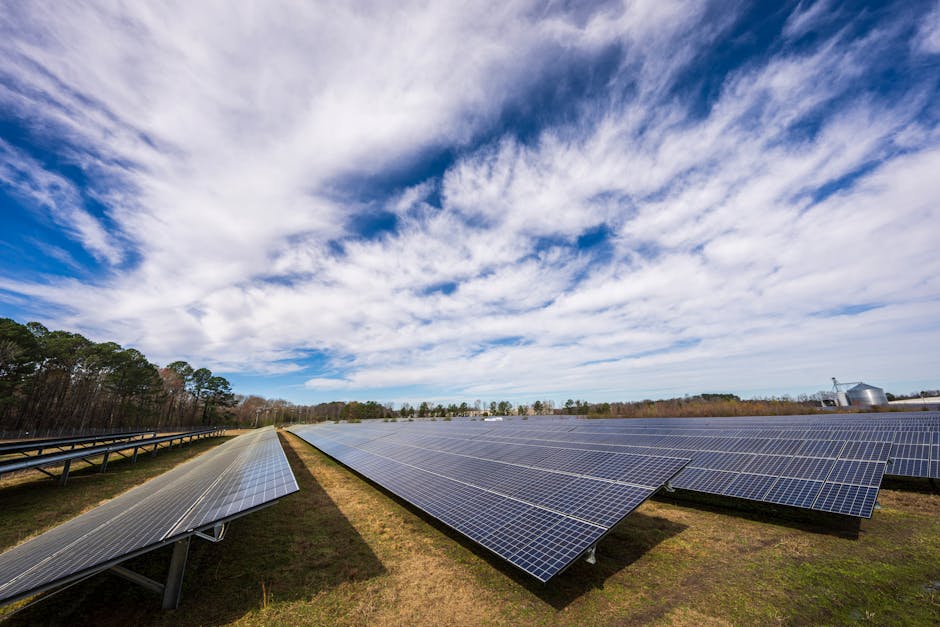Climate change, driven primarily by anthropogenic greenhouse gas emissions, presents a profound challenge to global ecosystems and human societies. Its impacts, ranging from extreme weather events to sea-level rise, are already being felt worldwide. A critical question therefore arises: is a viable solution to this multifaceted problem attainable? The answer, while complex, is a nuanced yes, contingent on immediate, concerted, and globally coordinated action. There is no single silver bullet, but rather a multifaceted strategy encompassing technological innovation, policy reform, and societal transformation is required.
Technological advancements offer a crucial component in mitigating climate change. Renewable energy sources, such as solar, wind, geothermal, and hydropower, are steadily becoming more efficient and cost-effective, offering viable alternatives to fossil fuels. Improvements in energy storage technology, including battery advancements and pumped hydro storage, are crucial for addressing the intermittency inherent in renewable energy production. Furthermore, carbon capture, utilization, and storage (CCUS) technologies hold promise in capturing CO2 emissions from power plants and industrial processes, either permanently storing them underground or utilizing them in other products. Nuclear energy, while controversial, remains a low-carbon source with high energy density, although concerns regarding waste disposal and nuclear proliferation must be carefully addressed. Investment in research and development across these areas is paramount to accelerate their deployment and enhance their efficacy.
Beyond energy production, technological solutions also target other sectors. Improvements in building design and materials can significantly reduce energy consumption in buildings, a major source of greenhouse gas emissions. Electric vehicles, coupled with the expansion of charging infrastructure, are gradually replacing internal combustion engine vehicles, reducing transportation-related emissions. Sustainable agriculture practices, such as precision farming, agroforestry, and reduced tillage, can minimize emissions from agriculture while improving soil health and biodiversity. Advancements in materials science are leading to the development of more sustainable materials with lower carbon footprints, reducing emissions throughout the lifecycle of products. The adoption and scaling of these technologies necessitate significant investment and supportive policy frameworks.
Policy and regulatory measures are essential for driving the transition to a low-carbon economy. Carbon pricing mechanisms, such as carbon taxes or cap-and-trade systems, provide economic incentives for emission reductions. Subsidies for renewable energy and energy efficiency measures can accelerate the deployment of clean technologies. Stricter emission standards for vehicles and industries can drive innovation and improve environmental performance. International agreements, like the Paris Agreement, provide a framework for global cooperation and commitment to emission reduction targets. However, the effectiveness of these policies depends on their design, implementation, and enforcement, requiring strong political will and international collaboration.
Furthermore, achieving climate change mitigation necessitates a significant shift in societal attitudes and behaviors. This involves raising public awareness about the urgency and severity of climate change, promoting responsible consumption patterns, and fostering a sense of collective responsibility. Education plays a crucial role in disseminating knowledge about climate change impacts and solutions, empowering individuals to make informed choices. Sustainable lifestyles, encompassing reduced energy consumption, responsible waste management, and conscious consumption, are essential for reducing individual carbon footprints. Moreover, promoting sustainable transportation options, such as cycling and public transit, can contribute to reducing emissions from the transportation sector. This transformative shift requires a fundamental change in how we value economic growth versus environmental protection, prioritizing long-term sustainability over short-term gains.
However, acknowledging the challenges is equally crucial. The transition to a low-carbon economy requires substantial investments, potentially causing economic disruptions in certain sectors. Technological solutions are not always readily available or affordable, particularly in developing countries. Political resistance to climate action can hinder the implementation of effective policies. Addressing climate change inequities, ensuring a just transition for workers and communities affected by the shift away from fossil fuels, and providing support to developing nations to adapt to and mitigate climate change are fundamental elements of a viable solution. Geopolitical complexities further complicate international cooperation, highlighting the need for trust-building and diplomatic efforts.
In conclusion, a viable solution to climate change is achievable, but not without considerable effort and commitment. It necessitates a multi-pronged approach encompassing technological innovation, robust policy frameworks, and societal transformation. While challenges exist, the growing urgency of the climate crisis necessitates immediate and decisive action. Investing in renewable energy, improving energy efficiency, implementing effective carbon pricing mechanisms, fostering sustainable lifestyles, and promoting international cooperation are all crucial steps towards building a more sustainable future. The path is demanding, but the alternative inaction presents an even more catastrophic outcome. Ultimately, the viability of climate change solutions rests not just on technological possibility, but on the collective will and determination of humanity to secure a habitable planet for future generations.
